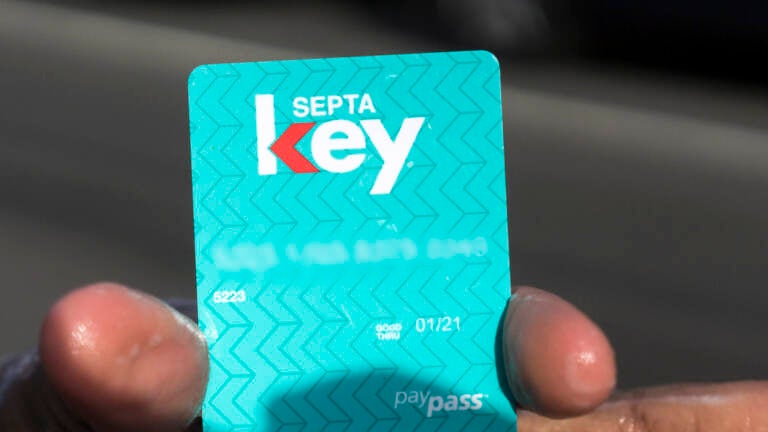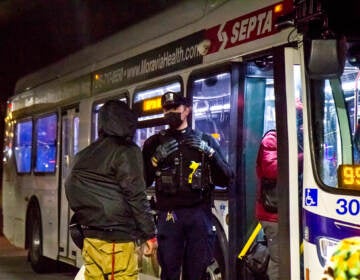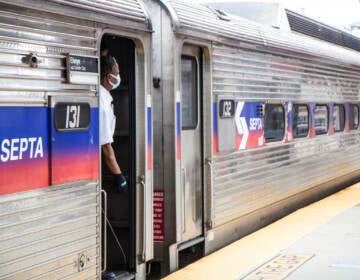SEPTA expands Key Advantage program, urging more large employers to get workers on mass transit
SEPTA is growing its Key Advantage program, an effort to get big companies to sign up for Key cards that are given to employees as a benefit.

A SEPTA Key card. (Danya Henninger / Billy Penn)
SEPTA is growing its Key Advantage program, an effort to get big companies to sign up for Key cards that are given to employees as a benefit.
The program was tested starting in March by three companies, Penn Medicine, Drexel University, and Wawa. Since then, they’ve signed up just under half of their eligible workers, much greater than the buy-in the transit agency initially expected, said SEPTA’s Andrew Busch.
“We went into it thinking that we would get about 25% of those eligible employees signing up, Busch said. “We were really pleased and working with those partners to see that more people signed up. And now we’re offering it out to additional employers, starting initially with larger employers.”
The plan is to start offering the option to companies with 500 or more employees with a target start date of September 1. The cards cost employers $160 each for the first six months, with an adjustment in month seven based on usage that can only go up or down by 10%.
Busch explained the goal is to act just as insurance companies do, by adjusting the costs based on SEPTA’s expenses.
“It’s not going to be a huge increase at once,” he said. “We’re going to make sure that we have some certainty with them, make sure that they know how we’re calculating this, how we’re tracking the ridership.”
The plan came at a time when SEPTA’s ridership was down following the pandemic lockdowns.
The transit agency is working on ways to bring riders back, from cleaning up stations to increasing security and bringing on social service workers to assist people who ride the system with no destination. The goal is to make SEPTA more rider-friendly and attractive, especially at a time when higher costs of driving make mass transit a much more economic option.
The decision to expand the program comes at a time when employers are making decisions about whether to continue work-at-home programs and Busch said it could be an incentive offered to workers to make it easier to transition back to the workplace.
“We know that in-person work is going to look different for a lot of people moving forward. But we think that this kind of benefit that employers can provide is making it as easy as possible for their employees to travel to and from work and then get around elsewhere using public transportation,” he said.
Once the program is offered to large employers, SEPTA will offer it to smaller companies. Starting on January 1st, SEPTA will move to employers who have between 50 and 499 employees. By next May, it’s expected to be opened up to all employers.

Get daily updates from WHYY News!
WHYY is your source for fact-based, in-depth journalism and information. As a nonprofit organization, we rely on financial support from readers like you. Please give today.






